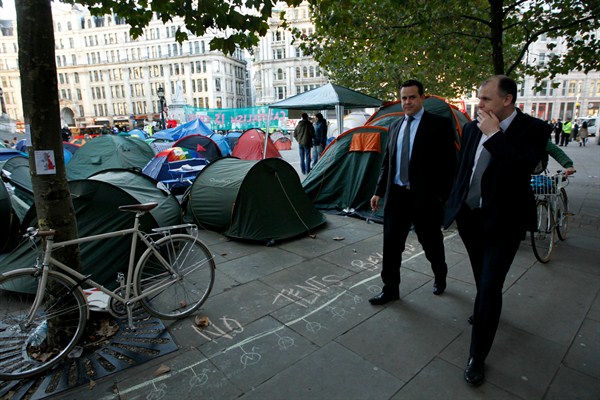Editor’s note: This article is part of an ongoing WPR series on income inequality and poverty reduction in various countries around the world.
In late August, British Prime Minister Theresa May wrote in an op-ed that excessive pay to some business executives in the United Kingdom represented the “unacceptable face of capitalism.” The statement followed up on her Conservative Party’s manifesto, which was unveiled last spring and includes a proposal to limit corporate executive compensation in an effort to reduce income inequality. But those plans have gone nowhere so far, despite popular resentment over Britain’s inequality—an important factor in the successful push for Brexit. In an email interview, Jacob Kirkegaard, a senior fellow at the Peterson Institute for International Economics, discusses just how unequal British society has become, why the government has failed to act, and why its limited proposals may even make matters worse.
WPR: What is driving the growth in inequality in the U.K., and how recent of a trend is it?

